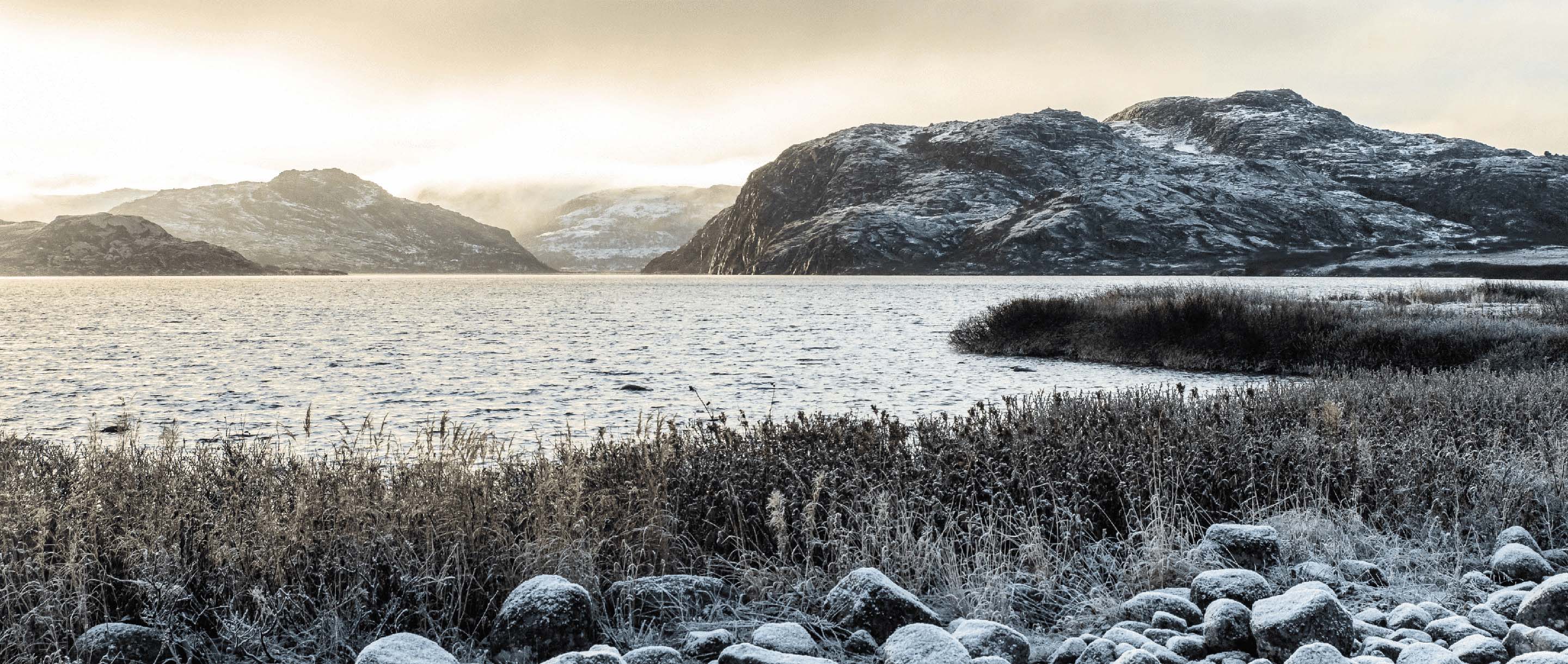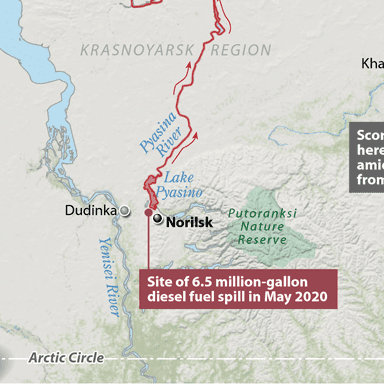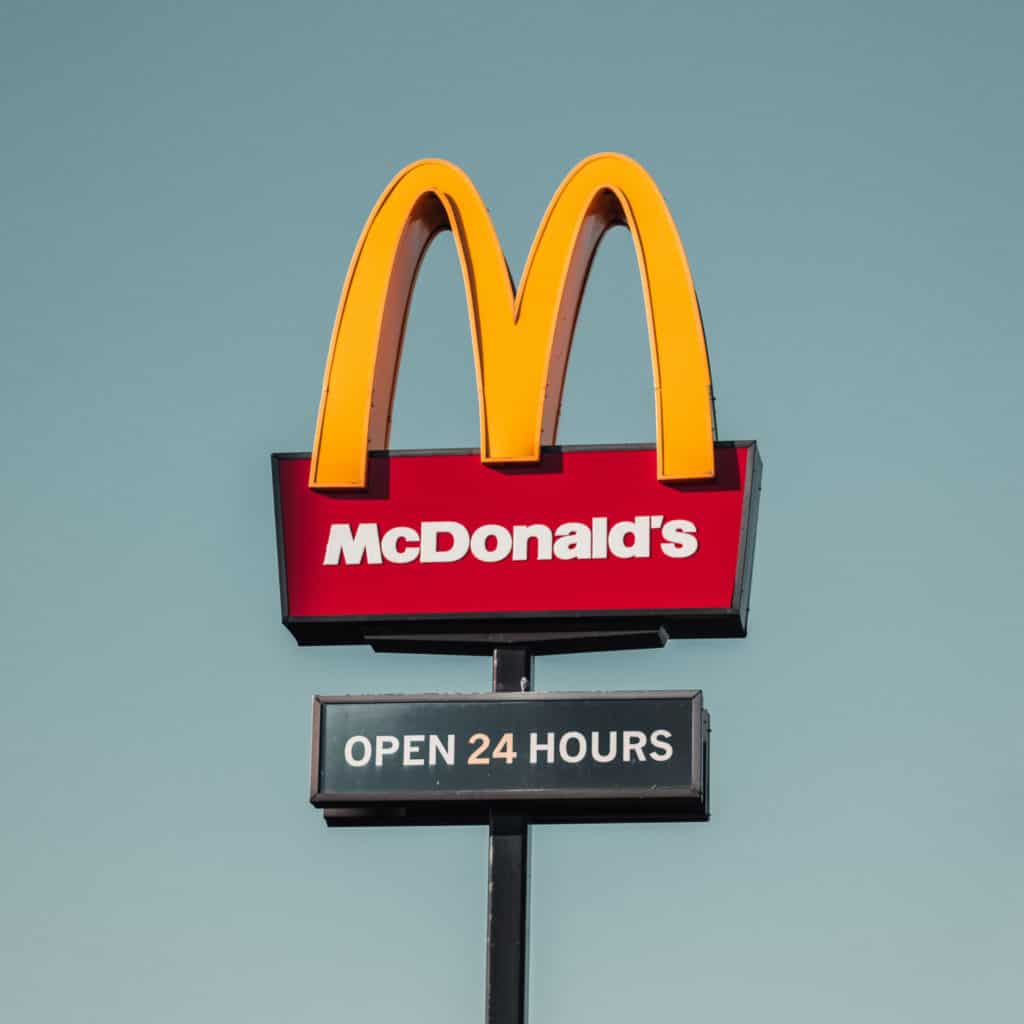Edition #6 | Environment Forward

Food sustainability innovations and challenges, pollution in the arctic, and changing our habits.
Howdy! Greetings from Austin, Texas. In this 6th Edition of Environment Forward we’re exploring both innovations and challenges when it comes to food sustainability. From the carbon footprint of McDonald’s (Spoiler Alert: it’s bigger than the country of Norway) to lab-grown meats and farm-raised clams, there’s a lot happening in the food space and room for improvement. We also check out what’s happening in the Siberian arctic in a city that is now one of the most polluted places on earth. I’d love to know what you’ve been reading lately and what sustainability innovations you’re excited about – be sure to drop me a line and let me know your thoughts.
Ecocide in the Russian Arctic
Until reading about Norilsk in Inside Climate News, I was unfamiliar with the Siberian city 200 miles north of the Arctic Circle which environmentalists and the Russian Federation government have recognized as one of the most polluted places on earth. The city is home to Norilsk Nickel, which is the world’s biggest producer of palladium and high-grade nickel. The environmental stakes for nickel production have been high, including but not limited to, polluted water and air, destroyed boreal forests, reduced reindeer populations, and the highest sulfur dioxide emissions in the world. Some are declaring this devastating destruction as ecocide. Norilsk Nickel has pledged $5 billion on pollution control and revitalization with a declared focus on environmental performance across their operations starting in 2021. Norilsk residents and environmentalists are skeptical.
Image credit: Paul Horn/Inside Climate News
46% of people say they don't need to change their habits for the climate
Grist explores the implications of a recent study that shows while 78% of people surveyed indicated they were concerned about climate change, 46% said they did not feel much need to change their habits. Respondents provided some insight into their reasoning for not willingly adopting more environmentally-friendly habits including being unable to afford to change their behavior and feeling that making a change to their habits wouldn't do much good. At CarbonBetter, we believe that progress comes step by step and that everyone has a role in protecting our planet; a series of distinct choices and small changes can create large shifts. We encourage our readers to not be part of the 46% and evaluate small actions you can take - you can share your commitment by taking our pledge.
Image credit: Kantar Public
Can McDonald's fix its methane problem?
With more than 39,000 restaurants globally, Mcdonald's serves up between one to two percent of the world's total beef. They also have a carbon footprint larger than the country of Norway with emissions exceeding 53 million metric tons of carbon per year. McDonald's has made commitments to address the climate impacts of their burgers, helping to launch the Global Roundtable for Sustainable Beef, pledging to reduce the climate intensity of their food and packaging by 31% by 2030, and most recently setting a pledge to reach net-zero by 2050. Since 2015, their emissions have gone up by 7% but the company has claimed to have reduced their emissions intensity of food and packaging by almost 6% for the same time period. They have not provided traceable data to allow customers to understand how the emissions intensity was quantified. Balancing costs, ingredients, supply chain, and quality with carbon footprint is tough - to reduce the carbon footprint of a Big Mac and reach their climate promises, it's going to take a lot of work starting from the farming practices of their beef to the selection of their packaging.
Image credit: Alex Motoc
Ocean farms, innovations in lab-grown meat and Fitbit for plants
The Food Weekly newsletter from GreenBiz, which explores progress towards a more sustainable food system, tends to be a highlight in my inbox, and their latest quarterly roundup of food startups did not disappoint. In this latest roundup, they explore a technology company, PhytlSigns that has been dubbed "Fitbit for plants" and was developed in a greenhouse setting. As companies explored lab-grown meats as an alternative to the large amounts of land required for farming, Gelatex is working on mass-producing 3D scaffolds for lab-grown meat manufacturing. While I am not yet sold on the concept of lab-grown meat, I am impressed by the innovative clam farming approaches taken by Oceano Fresco, which built the first open-sea clam farm. Bivalves are lower on the food chain and clean ocean water as they grow, making them a more sustainable seafood choice, especially with optimized farming techniques.
Image credit: Oceano Fresco via The Fish Site
Nicole Sullivan is the Climate Services Manager at CarbonBetter. When she's not working on sustainability reports and helping clients to decarbonize, she's busy reading about the environment or is outdoors exploring it. Connect with her on LinkedIn and drop her a line to let her know what you thought about these stories and share what you're reading.



